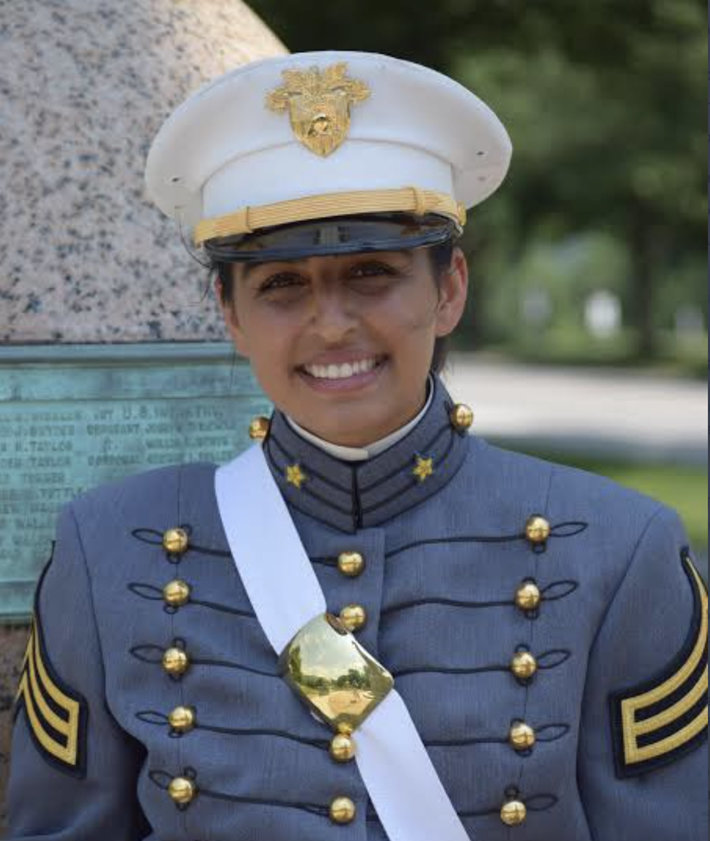The first observant Sikh woman in the 218-year history of the United States Military Academy at West Point made history this week when she graduated from the distinguished institution.

Second Lt. Anmol Narang, a second-generation American of Indian origin, graduated with a four-year degree in nuclear engineering, the Associated Press reports.
Born and raised in Roswell, Georgia, Narang hopes to build a career in air defense systems. She transferred to West Point after a year of undergraduate study at the Georgia Institute of Technology.
“I am excited and honored to be fulfilling my dream of graduating from West Point,” Narang said in a news statement issued by the Sikh Coalition, a New York City-based nonprofit devoted to protecting the constitutional right of Sikhs to practice their faith without fear.
“The confidence and support of my community back home in Georgia has been deeply meaningful to me, and I am humbled that in reaching this goal, I am showing other Sikh Americans that any career path is possible for anyone willing to rise to the challenge,” Narang added.
After completing her Basic Officer Leadership Course at Fort Still in Lawton, Oklahoma, Narang will take up her first post at the U.S. military base in Okinawa, Japan, this January.
While Narang is not the first Sikh to graduate West Point, according to the Sikh Coalition, she is the first Sikh woman from the military academy who observes her faith.
At West Point, Narang did not require any particular accommodation to practice her faith, which originated in the Punjab province of India in the 15th century and requires observant men to wear a turban and women to wear a head covering in public.
“Her exemplary service…underscores how diversity and pluralism remain core strengths of the U.S. military and the country as a whole,” the Sikh Coalition told the AP.
The U.S. Army updated its grooming and appearance policies in 2017 by permitting observant Sikh soldiers to wear turbans and maintain their beards. Muslim women are also allowed to wear head coverings.
The directive cleared the way for “people who otherwise would have had to abandon cherished religious practices to serve.”
A family friend of Narang, U.S. Army Captain Simratpal Singh, said he was proud of the graduating officer for “breaking a barrier for any Sikh American who wishes to serve.”
He added: “The broader acceptance of Sikh service members among all of the service branches, as well as in top-tier leadership spaces like West Point, will continue to benefit not just the rights of religious minority individuals but the strength and diversity of the U.S. military.”
_____________________
From its beginnings, the Church of Scientology has recognized that freedom of religion is a fundamental human right. In a world where conflicts are often traceable to intolerance of others’ religious beliefs and practices, the Church has, for more than 50 years, made the preservation of religious liberty an overriding concern.
The Church publishes this blog to help create a better understanding of the freedom of religion and belief and provide news on religious freedom and issues affecting this freedom around the world.
For more information, visit the Scientology website or Scientology Network.


